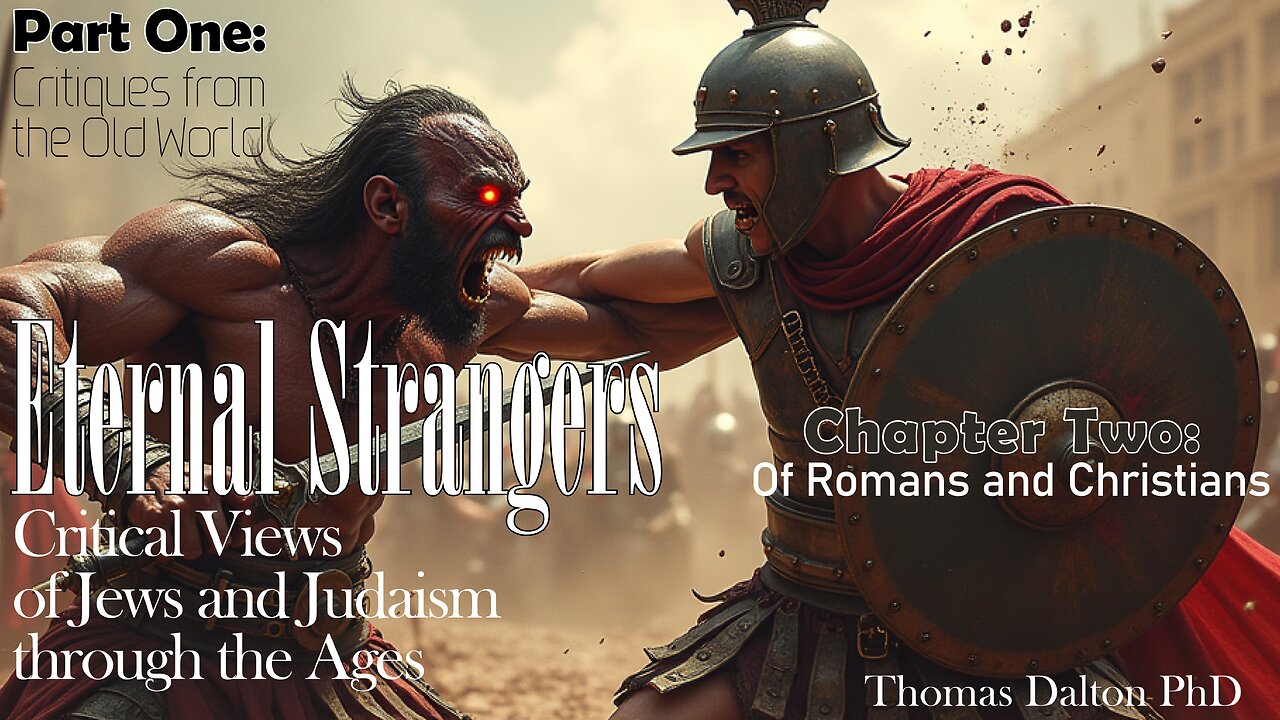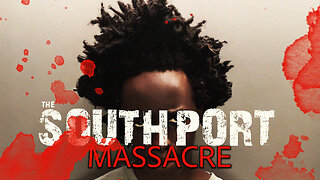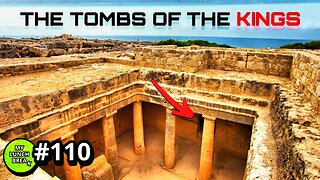Premium Only Content

Eternal Strangers Critical Views of Jews and Judaism through the Ages - Chapter Two
Part One: Critiques from the Old World
Chapter Two :
Of Romans and Christians
by Thomas Dalton PhD
The turn of the millennium was significant on several counts. Rome had
formally become an empire under Augustus, as of 27 BC. Jesus of Nazareth was (allegedly) born 3 BC. Jewish philosopher Philo was active at this
time, as was perhaps the most notorious ‘anti-Semite’ of that age, Apion.
His notoriety derives not so much from his accusations—which for the
most part were preexisting ones—but instead for his renown amongst the
upper classes of Alexandrian society, and because the Jewish writer Josephus elected to title one of his own books Against Apion (‘Contra Apionem’). As Stern (1974: 390) says, “Apion was a rather popular writer,”
and thus it is no wonder “that it was Apion, among all the anti-Semitic
Graeco-Egyptian writers, whom Josephus chose as his main target.” A
sample of the criticisms laid by Apion in his book Against the Jews includes:
– The leprosy-ridden Exodus story.
– An etymology of the Jewish term ‘Sabbath’ that derives from ‘tumors
of the groin’.
– Numerous tales of Jewish foolishness or naiveté.
– Well-deserved mistreatment by Cleopatra (withholding of corn during a
regional famine, and various conflicts with the Jewish king Herod).
– Jews’ failure to erect statues of the emperors.
– Tendency “to show no goodwill to a single alien, above all to Greeks”.
– Unjust laws.
– “Erroneous” religious practices.
– Failure to produce any geniuses in the arts or crafts.
– Not eating pork.
– Circumcision.
Apion evidently supplied something of a catalog of complaints against the
Jews, and added a few of his own. This again suggests a lengthy and persistent history of well-deserved criticism.
PDF - https://der-stuermer.org/english/Thomas%20Dalton%20-%20Eternal%20Strangers.pdf
Purchase - https://www.clemensandblair.com/product-page/eternal-strangers
-
 13:07
13:07
DEADBUGsays
4 hours agoThe Southport Massacre, The Great British Cover-Up
22.5K14 -
 25:26
25:26
hickok45
7 hours agoSunday Shoot-a-Round # 265
19.3K26 -
 30:55
30:55
Tundra Tactical
18 hours ago $17.32 earnedFaith, Family, Gun Rights : Tundra Tactical Interviews Erich Pratt Vice President Of GOA
99.6K27 -
 24:08
24:08
MYLUNCHBREAK CHANNEL PAGE
1 day agoUnder The Necropolis - Pt 4
236K75 -
 1:26:44
1:26:44
Tactical Advisor
1 day agoTrump Starting Strong/Shot Show Recap | Vault Room Live Stream 015
127K10 -
 49:13
49:13
SGT Report
1 day agoGILDED CAGE: A.I. PRODUCED MRNA VACCINES & THE ROAD TO HELL -- Sam Anthony
78.9K406 -
 17:00
17:00
BIG NEM
17 hours agoI Spent 10 Years Making a Movie About a 40 Year Old VIRGIN
12.4K1 -
 17:01
17:01
RealitySurvival
13 hours agoRussia's Anti-Satellite Weapon Could Disable Your Commuter Car!
9.56K -
 4:13:39
4:13:39
Nobodies Gaming
20 hours ago $46.23 earnedNobodies : Rumble Gaming MARVEL RIVALS
257K11 -
 19:52
19:52
Adam Does Movies
17 hours ago $7.16 earnedEmilia Pérez Movie Review - It's Uniquely Awful
73.5K8